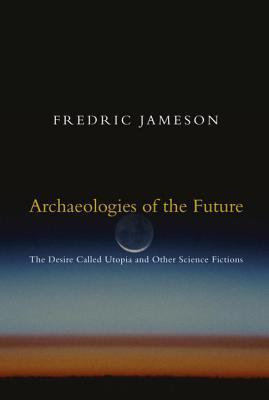What do you think?
Rate this book


448 pages, Paperback
First published January 1, 2005
Fantasy has indeed, as a genre, much stronger affinities with medieval content than with such Renaissance forms; and this will indeed be one of the topics to be explored in what follows, particularly in the light of the medieval currents that continue to inform More's Utopia. But I will also want to address two other structural characteristics of fantasy which contrast sharply with SF and can also serve as differentiae specificae for the genre, namely the organisation of fantasy around the ethical binary of good and evil, and the fundamental role it assigns to magic.
Yet it would not be altogether correct to stage the opposition between SF and fantasy as a replay and variant of the more familiar modern antagonism between high and low mass culture - or at least it is a position one can take only after registering the postmodern attenuation of these boundary lines, the rapprochement between high and low culture in the last decades [the 80s and 90s], and the blurring of distinctive generic characteristics which characterises postmodernity here as elsewhere. Not only are some of the best recent works and writers difficult to classify, but the disputes about what cannot be admitted into the SF canon have come to seem increasingly unproductive, even though the genre itself depends on them and is constituted by generic recognition (or its accompanying opposite number, generic indecidability). The work of Gene Wolfe, richly developing in the spaces between fantasy and SF, can perhaps serve as a central exhibit in these debates: for myself, I acknowledge its quality but feel a deep reluctance to abandon these generic distinctions. Perhaps the qualitative judgements that are so easy to make in SF are unavailable in so amorphous a world of discourse as fantasy.
This word [dystopia] is laden with dangerous and misleading ambiguities, which are not diminished by the recent coinage of the neologism (whose wider currency dates, we are told, from the 1950s - in other words, from the Cold War). As our own practice has testified, it is not easy to change one's linguistic habits when it comes to a word like this, which obviously began to fill a real gap between the two negations in question [which are critique of the old order and prophetic warning about what replaces it]. The dystopian tetralogy of John Brunner, for example, is the classic exemplification of a principle designated by the title of a famous 1940 Heinlein story: 'if this goes on...' Overpopulation, pollution, an inhuman rate of technological change - these are then extrapolated into what are certainly in Brunner 'new maps of hell', maps frequently (and not incorrectly) characterised as dystopian. [...]
Tom Moylan's proposal for a generic conception of the 'critical dystopia' clarifies this difference. The critical dystopia is the negative cousin of the Utopia proper, for it is in the light of some positive conception of human social possibilities that its effects are generated and from Utopian ideals its politically enabling stance derives. Yet if one reserves the term dystopia for works of this kind, then Orwell's works must be characterised in a markedly different way and by a distinctive generic terminology: I propose to characterise them as anti-Utopian, given the way in which they are informed by a central passion to denounce and warn against Utopian programs in the political realm. [...]
A fourth term or generic category would seem desirable. If it is so, as someone has observed, that it is easier to imagine the end of the world than the end of capitalism, we probably need another term to characterise the increasingly popular visions of total destruction and of the extinction of life on Earth which seem more plausible than the Utopian vision of the new Jerusalem but also rather different from the various catastrophes (including the old ban-the-bomb anxieties of the 1950s) prefigured in critical dystopias. The term apocalyptic may serve to differentiate this narrative genre from the anti-Utopia as well, since we do not sense in it any commitment to disabuse its readership of the political illusions that Orwell sought to combat, but whose very existence the apocalyptic narrative no longer acknowledges.
Let the Wagnerian and Spenglerian world-dissolution of J. G. Ballard stand as exemplary illustrations of the ways in which the imagination of a dying class - in this case the cancelled future of a vanished colonial and imperial dynasty - seeks to intoxicate itself with images of death that range from the destruction of the world by fire, water, and ice to lengthening sleep or the berserk orgies of high rise buildings or superhighways reverting to barbarism.
Ballard's work - so rich and corrupt - testifies powerfully to the contradictions of a properly representational attempt to grasp the future directly. I would argue, however, that the most characteristic SF does not seriously attempt to imagine the 'real' future of our social system. Rather, its multiple mock futures serve the quite different function of transforming our own present into the determinate past of something yet to come. [...] SF thus enacts and enables a structurally unique 'method' for apprehending the present as history, and this is so irrespective of the 'pessimism' or 'optimism' of the imaginary future world which is the pretext for that defamiliarisation.